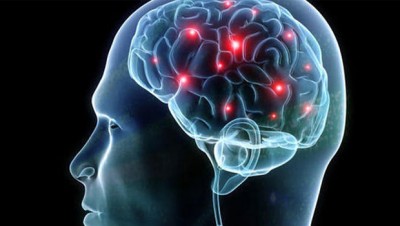
Battling ongoing drug cravings is one of the most challenging aspects of sustained recovery for drug abusers; which can seemingly come out of nowhere. Recovering individuals often fail to recognize the strong influence that these cravings have over their lives and thus fail to prepare for them. They often believe that they have enough will-power to prevent themselves from returning to the old habits which led to their drug addiction in the first place. However, research shows that the psychological triggers that cause addictive cravings are actually part of the brain’s reward system, making them difficult to overcome without professional treatment and maybe long-term recovery support from the appropriate mental health provider.
The Biological Causes of Drug Cravings
Put simply, a craving is part of the brain’s reward system, which encourages positive behaviors by releasing chemicals that make us feel good. The main chemical responsible for these feelings is Dopamine. Alternatively, the reward system discourages negative behaviors by releasing stress hormones that make us feel bad. The problem is that many harmful man-made substances, including opiate-based drugs, cause the release of dopamine and create feelings of euphoria. The brain then can associate drug use with a positive feeling and in some cases could create a craving that causes the individual to seek out more drugs. Although opiate-based drugs release less dopamine than other drugs they also release endorphins which help to reinforce the positive feelings. Thus, many recovering patients feel as though they are fighting against their natural instincts, which could be difficult in some cases without the appropriate emotional support.
The Role of Habituation
A scientific term called habituation is the underlying cause of most drug addictions and relates to the role that dopamine plays in creating pleasure. Habituation is essentially the diminishing reward that a drug abuser receives as they continue to use drugs over long periods of time. In essence, the amount of dopamine released and the amount of pleasure received drops each time individuals use drugs as they build up a tolerance to it. However, instead of a diminished desire to take the drugs, individuals might begin taking more in an effort to recreate the initial feelings.
For over 25 years, people from all over the world have chosen Waismann Method as their opioid detox provider.
We know the challenges you face and the importance of creating a unique and personal experience for you right from the start.Call for Detox Options 1-800-423-2482
This is called a psychological addiction, because the individual is attempting to generate a pleasurable emotional experience by taking drugs. This differs from a physiological dependence, where the individual takes drugs to alleviate the painful withdrawal symptoms that occur when they stop.
Understanding Drug Cravings and Triggers
While some recovering patients might experience psychological and physiological cravings for drugs following drug detoxification, these cravings can be intensified by the presence of certain triggers. These triggers are broken down into several categories:
- Environmental Triggers– These include people, places and things that cause cravings by the memories that they create. They can include things like houses, bars and parks where the individual used or purchased drugs.
- Re-exposure Triggers– These are events and situations where drug use is actively occurring such as at a party.
- Stress Triggers– These include any stressful life experience that causes the individual to seek relief.
While recovering individuals are urged to avoid these triggers, some like stress triggers are unavoidable. As a result, stress triggers are one of the most common causes of relapse in recovering patients.
The psychology of cravings that some individuals with a drug abuse history experience is closely related to the overall body and brain changes that occur as a result of long-term drug use. Thus, recovering individuals are battling not only their psychological cravings but also physical and emotional ones as well. It is imperative for those suffering from drug addiction to seek a comprehensive psychological treatment plan that can address, assess and treat each of these cravings individually.





